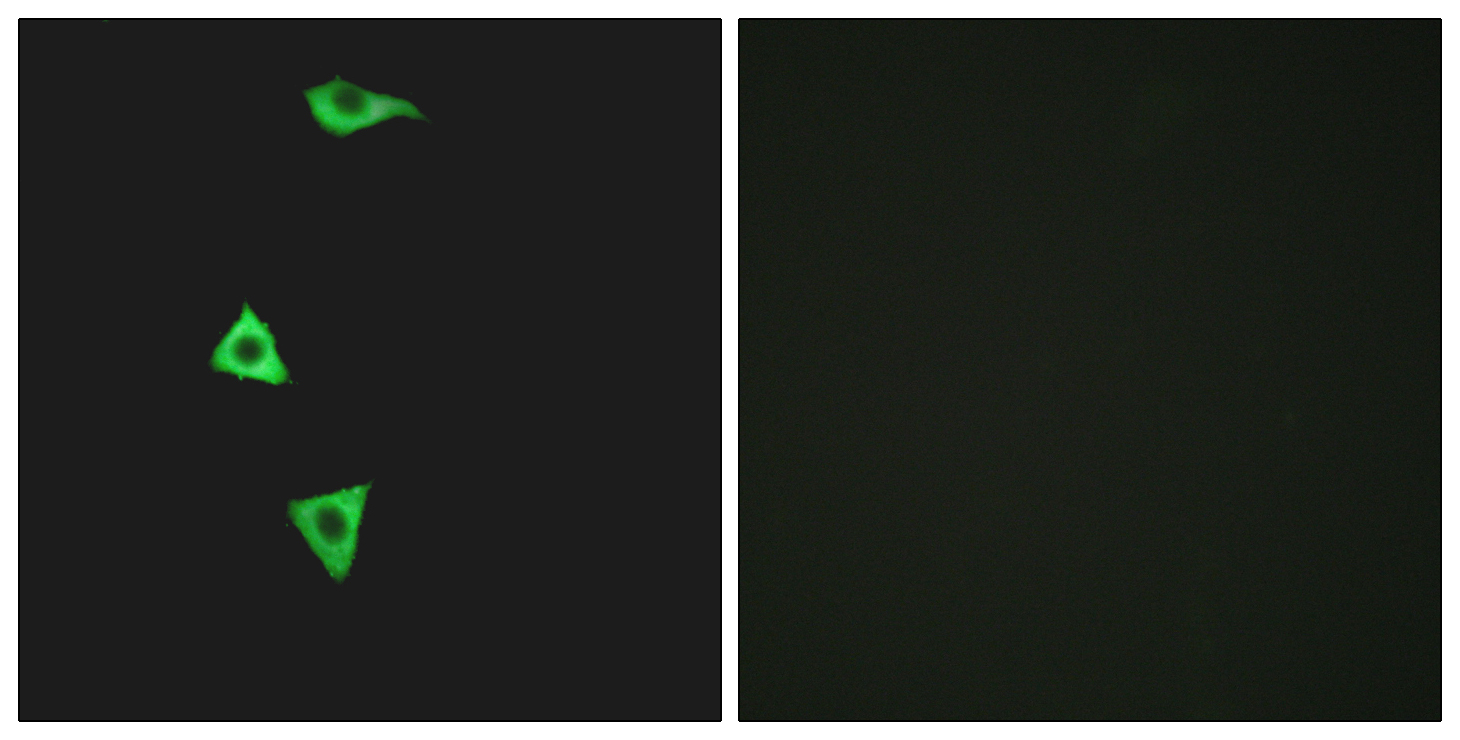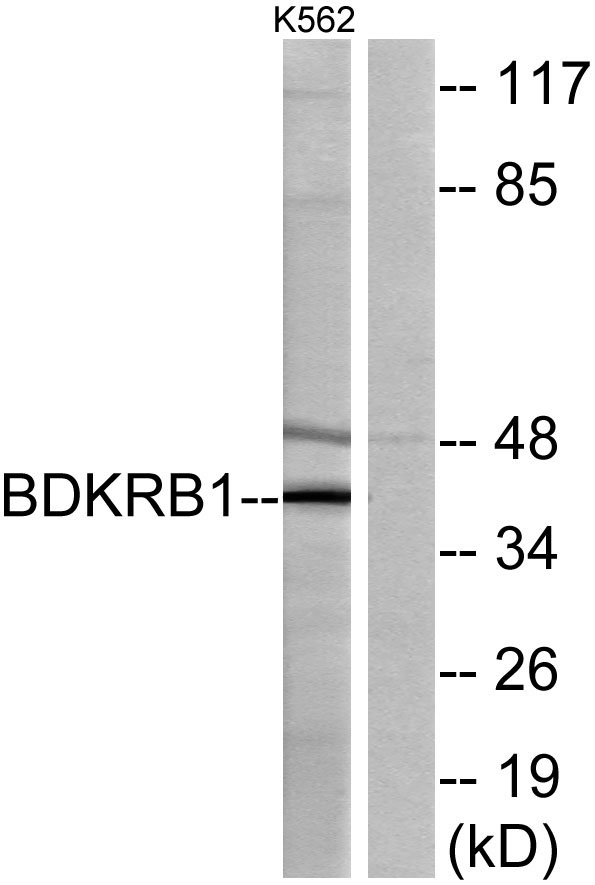Bradykinin B1 R Polyclonal Antibody
- Catalog No.:YT0514
- Applications:WB;IF;ELISA
- Reactivity:Human;Rat;Mouse;
- Target:
- Bradykinin B1 R
- Fields:
- >>Calcium signaling pathway;>>Neuroactive ligand-receptor interaction;>>Complement and coagulation cascades;>>Inflammatory mediator regulation of TRP channels;>>Regulation of actin cytoskeleton;>>Pathways in cancer
- Gene Name:
- BDKRB1
- Protein Name:
- B1 bradykinin receptor
- Human Gene Id:
- 623
- Human Swiss Prot No:
- P46663
- Mouse Swiss Prot No:
- Q61125
- Immunogen:
- The antiserum was produced against synthesized peptide derived from human BDKRB1. AA range:201-250
- Specificity:
- Bradykinin B1 R Polyclonal Antibody detects endogenous levels of Bradykinin B1 R protein.
- Formulation:
- Liquid in PBS containing 50% glycerol, 0.5% BSA and 0.02% sodium azide.
- Source:
- Polyclonal, Rabbit,IgG
- Dilution:
- WB 1:500 - 1:2000. IF 1:200 - 1:1000. ELISA: 1:5000. Not yet tested in other applications.
- Purification:
- The antibody was affinity-purified from rabbit antiserum by affinity-chromatography using epitope-specific immunogen.
- Concentration:
- 1 mg/ml
- Storage Stability:
- -15°C to -25°C/1 year(Do not lower than -25°C)
- Other Name:
- BDKRB1;BRADYB1;B1 bradykinin receptor;B1R;BK-1 receptor
- Observed Band(KD):
- 40kD
- Background:
- Bradykinin, a 9 aa peptide, is generated in pathophysiologic conditions such as inflammation, trauma, burns, shock, and allergy. Two types of G-protein coupled receptors have been found which bind bradykinin and mediate responses to these pathophysiologic conditions. The protein encoded by this gene is one of these receptors and is synthesized de novo following tissue injury. Receptor binding leads to an increase in the cytosolic calcium ion concentration, ultimately resulting in chronic and acute inflammatory responses. Several transcript variants encoding different isoforms have been found for this gene. [provided by RefSeq, Sep 2011],
- Function:
- function:This is a receptor for bradykinin. Could be a factor in chronic pain and inflammation.,online information:Bradykinin receptor entry,similarity:Belongs to the G-protein coupled receptor 1 family.,
- Subcellular Location:
- Cell membrane; Multi-pass membrane protein.
- Expression:
- Lung,Skin,
- June 19-2018
- WESTERN IMMUNOBLOTTING PROTOCOL
- June 19-2018
- IMMUNOHISTOCHEMISTRY-PARAFFIN PROTOCOL
- June 19-2018
- IMMUNOFLUORESCENCE PROTOCOL
- September 08-2020
- FLOW-CYTOMEYRT-PROTOCOL
- May 20-2022
- Cell-Based ELISA│解您多样本WB检测之困扰
- July 13-2018
- CELL-BASED-ELISA-PROTOCOL-FOR-ACETYL-PROTEIN
- July 13-2018
- CELL-BASED-ELISA-PROTOCOL-FOR-PHOSPHO-PROTEIN
- July 13-2018
- Antibody-FAQs
- Products Images

- Immunofluorescence analysis of LOVO cells, using BDKRB1 Antibody. The picture on the right is blocked with the synthesized peptide.

- Western blot analysis of lysates from K562 cells, using BDKRB1 Antibody. The lane on the right is blocked with the synthesized peptide.



